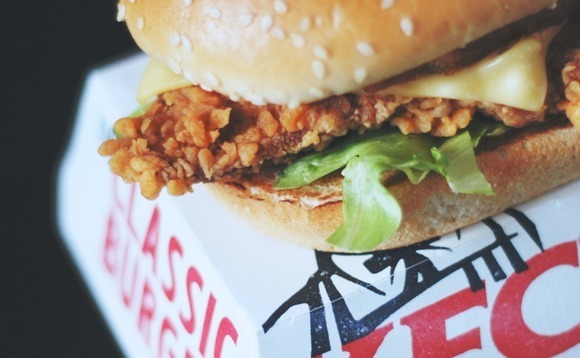
Deal focus: Orchestra seeks the right recipe for KFC Korea

Having secured permission to do sub-franchising and to make alterations to menus and store formats, Orchestra Private Equity believes it can succeed with KFC Korea where others failed
Korean conglomerate Doosan Group started divesting its food and beverage assets in the early 2000s. The local franchises for Burger King and KFC were the last two businesses sold – and they went to VIG Partners and CVC Capital Partners, respectively, in 2012 and 2014. From there, they took very different paths.
VIG grew Burger King from 130 to 240 restaurants and exited to Affinity Equity Partners in 2016 with a 2.5x return. Under Affinity's stewardship, the company has expanded to approximately 450 stores. KFC currently has 200 restaurants and has spent the last five years under another conglomerate, KG Group, which reportedly acquired the asset for half the KRW 100bn (USD 81m) CVC paid to Doosan.
The crux of the issue, according to Jay Kim, founder and partner of Orchestra Private Equity, is local sub-franchising rights: VIG obtained them from Restaurant Brands International, the parent company of Burger King; CVC did not do the same when negotiating with KFC owner Yum Brands. This impeded expansion because every new store had to be directly owned.
"If you acquire a restaurant business using leverage and you must open 30-40 stores every year under the franchise agreement, it can create a vicious cycle. You are in a tight cash flow situation and there isn't enough capex to open stores in good locations, so you end up in bad ones," Kim said.
Orchestra is set to become the next owner of KFC Korea, having agreed to buy the franchise from KG Group for around KRW 60bn. This includes KRW 30bn in debt financing provided by the seller. Crucially, Orchestra has secured sub-franchising rights from Yum. Kim said that Korea is only the sixth market globally in which the US-based brand owner has made such a concession.
Orchestra operates on a deal-by-deal basis, and it has established a project fund for KFC Korea. The vehicle is structured offshore to facilitate involvement by global investors – Orchestra switched from a primarily Korean to a primarily international investor base on acquiring Japan-based scaffolding provider Stack last year – and Yum has agreed to participate.
"We got early information that KG Group was looking to sell, and we met with Yum early in the process and asked them to align with us by investing in the fund," said Kim. "This effectively meant it became a private deal. Everyone knew we were in bed with Yum, so they wouldn't bid against us."
The transaction – which is scheduled to close in March or April, following the completion of warrant and indemnity insurance and certain due diligence processes – came about because KG Group's relationship with Yum deteriorated to the point that both sides agreed to a divorce. There are said to have been culture clashes and differences of opinion on royalties paid to Yum.
Orchestra positioned itself as a partner that understands global best practices for quick service restaurants (QSR) and had local execution capabilities, tapping into Yum's desire to replicate in Korea the success KFC has enjoyed in China, India, and Japan. To this end, the master franchise agreement not only allows sub-franchising but also changes to store formats.
"We have permission to do small-box stores, which are at most half the size of standard restaurants. This lowers the cost of entry, so we can deploy franchising aggressively. There is a verbal agreement to do central kitchens as well, because when you do small-box franchising, you need a central function for mass-producing raw materials," said Kim.
In addition, the franchise agreement allows Orchestra to introduce drive-through stores and 24-hour stores and to make menus more diverse. At present, KFC Korea offers no rice dishes – unlike other Asian markets – and it has no dedicated breakfast or children's menus.
The store footprint is primarily metropolitan Seoul, and Orchestra believes there is scope for opening an additional 200-250 stores, which would put KFC on par with Burger King and McDonald's. The closest competitor in the chicken space, Mom's Touch, has about 1,300 outlets. This won't be matched, but there are plans to penetrate the discount space occupied by Mom's Touch.
Korea's fast-rising fried chicken restaurant chains, led by Kyochon F&B, Genesis BBQ, and private equity-backed BHC, are not regarded as direct rivals. Chicken burgers – as opposed to pieces of fried chicken – account for 70% of KFC's revenue and the dining experience is positioned differently.
"Places like BHC and BBQ are more chicken and beer. They are like pubs, and they fill up at dinner time or after hours," said Kim. "KFC is more traditional QSR – kids go there at break times, and you go with your family to have meals."
Latest News
Asian GPs slow implementation of ESG policies - survey
Asia-based private equity firms are assigning more dedicated resources to environment, social, and governance (ESG) programmes, but policy changes have slowed in the past 12 months, in part due to concerns raised internally and by LPs, according to a...
Singapore fintech start-up LXA gets $10m seed round
New Enterprise Associates (NEA) has led a USD 10m seed round for Singapore’s LXA, a financial technology start-up launched by a former Asia senior executive at The Blackstone Group.
India's InCred announces $60m round, claims unicorn status
Indian non-bank lender InCred Financial Services said it has received INR 5bn (USD 60m) at a valuation of at least USD 1bn from unnamed investors including “a global private equity fund.”
Insight leads $50m round for Australia's Roller
Insight Partners has led a USD 50m round for Australia’s Roller, a venue management software provider specializing in family fun parks.








